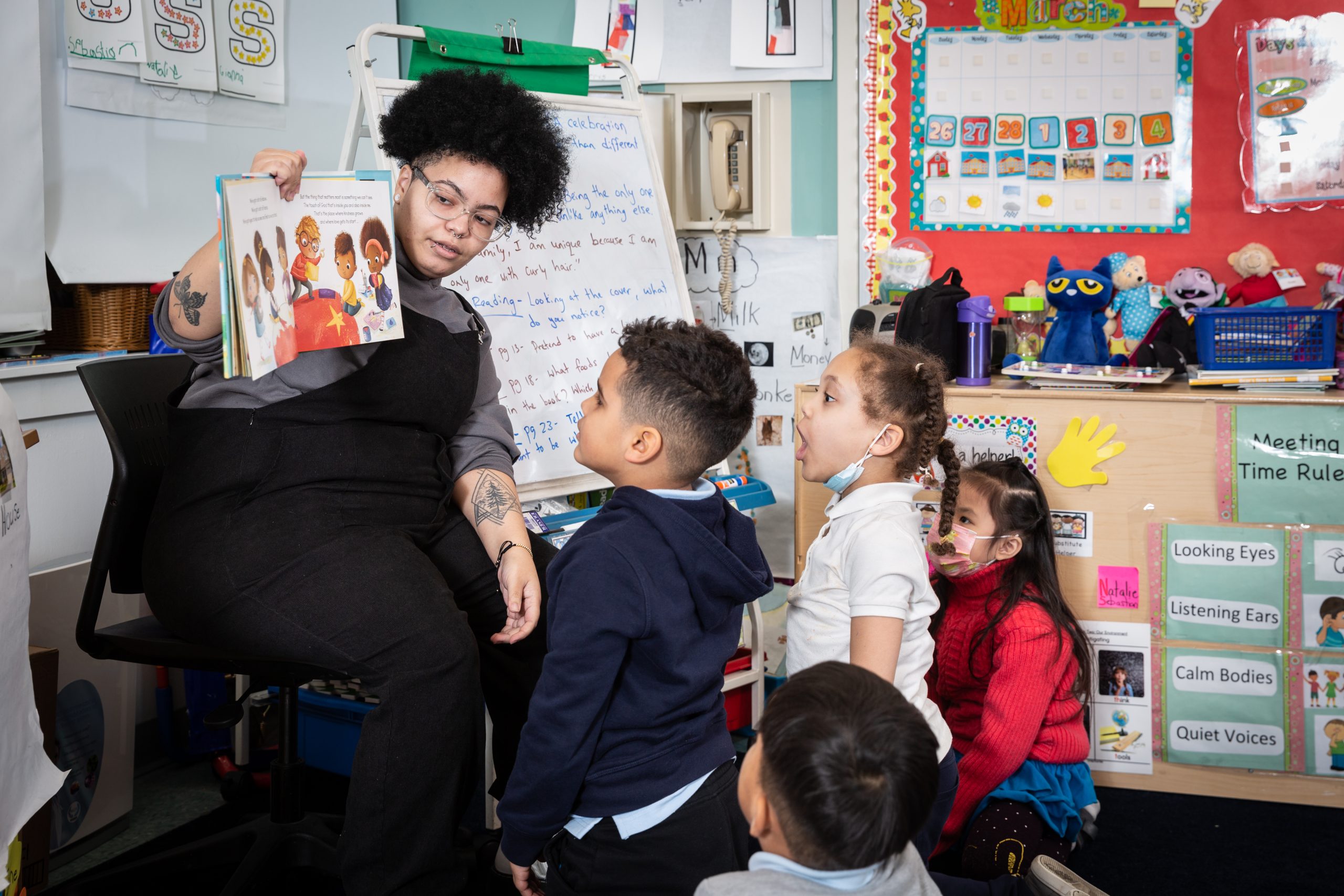The legacy of the late philanthropist Brooke Astor, stewarded throughout a decade of Trust grantmaking, has influenced systemic improvements to reading instruction that will now reach 2.4 million students across New York State.
Over a decade ago, New York State Attorney General Eric Schneiderman asked The Trust to put $45 million from Brooke Astor’s estate to work. Astor’s long-time passion for children’s education, combined with troubling literacy rates in New York City schools, made the mission for her money obvious: to improve literacy across the five boroughs.
But executing this mission was far from simple. The scale and complexity of educating New York’s children can be overwhelming.
With more than one million students enrolled in 1,800 public schools, the New York City school system is the largest in the country.
The Trust’s grantmaking staff knew that simply funding direct service programs would not create the long-term systemic reforms that New York schools urgently needed. Instead, they successfully made the case to support multiple strategies that could lead to lasting improvements and ultimately reach more students, including research, policy work, pilot programs, and advocacy.
Since 2013, the Astor Fund has awarded $35 million to 20 nonprofits to improve literacy in the early grades. These nonprofits have worked in hundreds of public elementary schools, training thousands of teachers and tutors, and reaching tens of thousands of low-income students in kindergarten through fifth grade.
The Trust’s Astor grantees developed a range of successful strategies to improve student reading, including new curricula and programming in the classroom, online frameworks for afterschool reading instruction, tools for educators to track student progress, and intensive training in reading instruction for teachers.
An independent evaluator found that nearly all the students in Astor-funded projects were better readers at the end of the program.
“The Astor grants have been transformative,” said Mathew Moura, vice president of early reading at Teaching Matters, a grantee of the Astor Fund. “To succeed, you need teachers equipped with the best research-backed methods of instruction to shape the reading and learning skills of generations. Ensuring that our students become readers in their early years is the foundation for successful learning—it will impact these children for the rest of their lives.”
These results also influenced and informed new plans to overhaul the city’s approach to reading instruction, as well as the statewide expansion policy announced by Governor Hochul earlier this year.
“It’s clear the Astor Fund’s innovations will continue to have an impact on reading instruction for many years to come,” said Carl Distefano, former chief of the Trusts and Estates Section in the Attorney General’s Charities Bureau.
